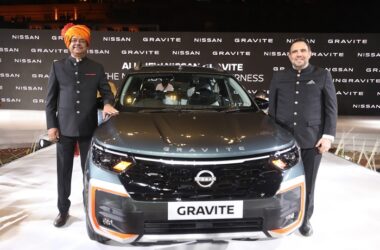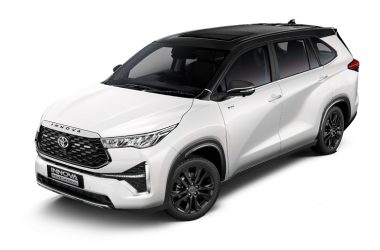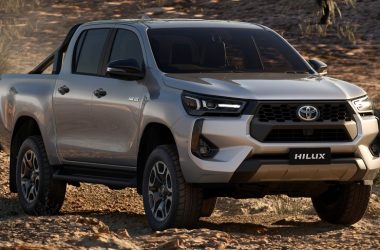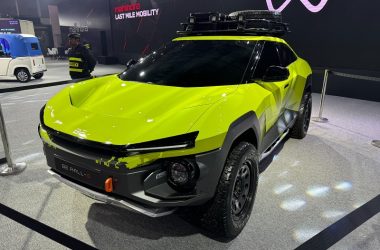New Delhi – Reaffirming its dedication to India’s energy independence and net-zero aspirations, Toyota Kirloskar Motor (TKM) marked its presence at the India Energy Week 2025 (IEW) in Delhi from February 11–14. As a key player in the clean energy revolution, TKM leveraged the event to unveil its comprehensive approach to sustainable mobility, spotlighting various alternative powertrains aligned with India’s evolving energy landscape.
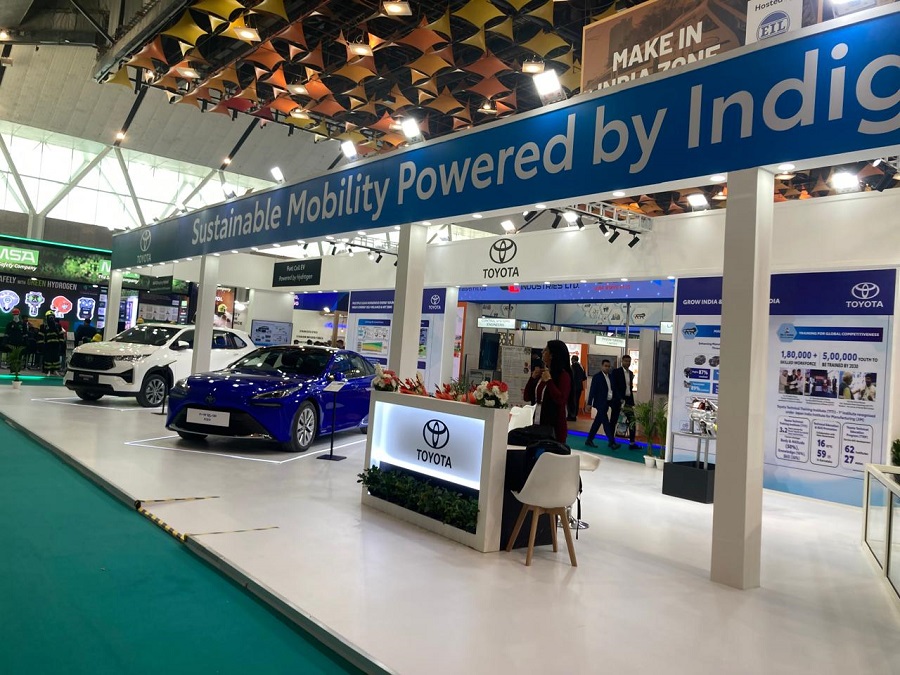
Commitment to Green Energy and Sustainability
The India Energy Week serves as a crucial platform for engaging policymakers, industry leaders, and technology pioneers in discussions about energy security and sustainability. Toyota, an advocate of a multi-pathway strategy, showcased diverse clean energy mobility solutions, emphasizing indigenous green energy sources.
Recognizing India’s unique energy mix, infrastructure readiness, and diverse consumer needs, TKM is championing solutions that integrate electrification and alternative fuels. Toyota’s showcase at IEW 2025 included:
- Strong Hybrid Electric Vehicle (SHEV): The Innova Hycross SHEV, a highly efficient hybrid vehicle, optimized for India and compliant with E20 fuel standards.
- Flex-Fuel Plug-in Hybrid Electric Vehicle (FFV-PHEV): Featuring the Prius FFV-PHEV, a prototype that blends electrification with ethanol fuel (up to 100%) to minimize carbon footprint.
- Urban Battery Electric Vehicle (BEV) Concept: A futuristic, all-electric urban vehicle focused on performance and sustainability.
- Fuel Cell Electric Vehicle (FCEV): The Mirai FCEV, a hydrogen-powered vehicle showcasing Toyota’s vision for a hydrogen economy.
- Electric Vehicle Sub-System: A locally manufactured e-Drive system, reinforcing Toyota’s commitment to ‘Make in India.’
Ethanol and Alternate Fuels: A Game-Changer for India
With India’s economy growing and vehicle demand rising, alternative fuels like ethanol have become crucial for reducing fossil fuel dependence. Ethanol not only lowers carbon emissions but also enhances rural prosperity by increasing farmer incomes and creating jobs. Toyota highlighted the Government of India’s push for second-generation ethanol technology, utilizing agricultural residues like paddy straw (parali) to produce ethanol and curb air pollution.
Speaking at the event, Vikram Gulati, Country Head & Executive Vice President – Corporate Affairs and Governance, TKM, emphasized the necessity of a multi-faceted decarbonization strategy:
“India Energy Week brings together energy and mobility stakeholders to drive clean energy solutions. Toyota’s Global Environmental Challenge 2050 integrates strategies for carbon neutrality across the value chain, underscoring our commitment to sustainable mobility.”
Beyond Vehicles: Toyota’s Holistic Sustainability Drive
Toyota Kirloskar Motor is actively incorporating renewable energy in its manufacturing operations, advancing localized production, and promoting skill development under ‘Make in India.’ The company’s sustainability milestones include:
- 100% Renewable Energy (RE) for Manufacturing: Transitioning from 0% in FY 2013-14 to 100% RE in FY 2021-22, cutting 447,253 tons of CO₂ emissions.
- Supplier Carbon Neutrality: Training over 139 supplier companies to implement carbon reduction strategies, with 62,351 tons of CO₂ cut through renewable energy initiatives.
- Rail Logistics for Vehicle Transport: Shifting 65% of North-bound transport routes to rail, reducing carbon emissions by 7.7 kg per vehicle in FY 2023-24.
- Water Sustainability: Meeting 89.3% of production water needs through rainwater harvesting and recycling.
Driving Local Innovation and Workforce Development
Toyota is prioritizing local manufacturing to make green technologies accessible and cost-effective. Key initiatives include:
- Localization of Electric Vehicle Components: Toyota Kirloskar Auto Parts (TKAP) is now the first Asian hub outside Japan to manufacture e-Drive systems.
- Skilling India’s Workforce: More than 180,000 youth trained through partnerships with 100+ institutions, empowering the next generation of automotive professionals.
The Road Ahead: Policy Support and Clean Mobility Expansion
Toyota called for continuous government support in promoting green energy solutions. Enabling policies will not only drive energy self-reliance but also foster investment in sustainable mobility and local manufacturing. By scaling up indigenous clean energy technologies, India can accelerate its transition to a low-carbon economy, ensuring economic growth while protecting the environment.
With its steadfast commitment to a cleaner future, Toyota Kirloskar Motor is setting the benchmark for green mobility, reinforcing India’s journey toward a self-sufficient and net-zero emissions future.
